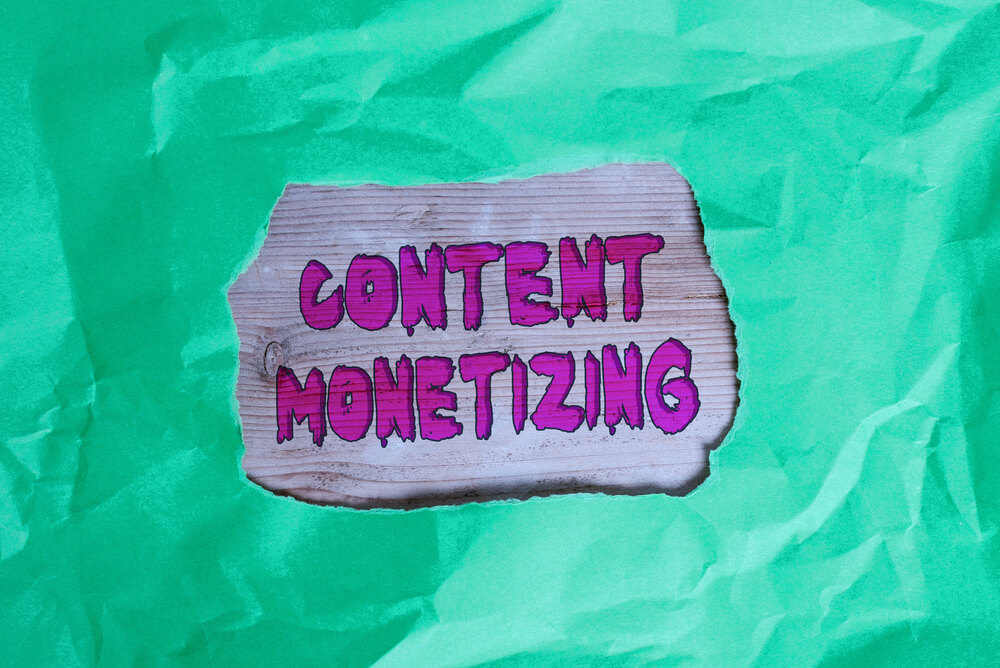How to Quit Your Day Job and Go Freelance
Step 0: Lose your job amidst a global pandemic.
A few weeks ago, I received the news that my full-time day job will be eliminated this summer, entirely due to necessary cost cuts thanks to the ongoing Coronavirus/COVID-19 pandemic. While this wasn’t entirely unexpected (my industry has been hit pretty badly) it was also pretty scary.
“No problem, thanks for giving me plenty of notice,” I said to my boss when they called.
“SHIT SHIT SHIT SHIT WHAT DO I DO NOW!?” I said to my partner as soon as I’d hung up the phone.
I started looking at possible jobs to apply for and quickly realizing that there’s almost nothing out there at the moment. The Venn diagram of industries I’m qualified to work in and industries that have been decimated by the pandemic is nearly a circle. So I started wondering if this might be the time to stop working full time for an employer and do something radically different.
Then I landed a new freelance writing contract with the potential to give me a lot of work. From there, the decision made perfect sense. Once my job contract expires this summer, I’m going 100% freelance/self-employed. This has always been my goal eventually and is something I want very much.
I just… didn’t expect a pandemic to be the thing that finally pushed me to make the leap.
So I wanted to share a few things I’ve learned in the hope that they’ll be helpful to anyone considering a similar move.
Do you know how to monetize what you do?

Most things can be monetized if you just know how. But it might not be in the way you initially expect. My first love as a writer is and always will be literary fiction. Do you know how much money I’ve made from literary fiction? £250. Ever.
To put it into perspective, that’s less money than I have made from writing articles about sex this week.
This is because it’s a hugely oversubscribed, wildly competitive and notoriously badly paying area of work. Fiction is a space where a fraction of a percentage of people make the mega-bucks, and everyone else makes almost nothing. But non-fiction, blog posts, how-to articles, feature stories, content marketing copy? THAT stuff is big business. And at the end of the day, it’s all words. It’s all writing.
So I realized that if I wanted to make it as a professional writer, I had two options: keep hoping I’d someday land that seven-figure deal for a breakout novel, the chances of which are vanishingly small, or branch out and monetize in different ways.
How I monetize
Here’s a list of all the ways I monetize my writing right now. I can’t easily give you percentages because it fluctuates, but these are roughly in descending order from largest to smallest.
- Writing for clients (regular or ad-hoc jobs where people pay me X amount of money to write them Y amount of words on a given topic.) Right now I do a mix of bylined work (with my name on it) and ghostwritten work.
- Editing for clients.
- Affiliate sales through my blog.
- Pitching article ideas to publications that are accepted. (Many, many more ideas will be rejected than accepted, that’s just the way this game goes.)
- Blog post sponsorship deals.
- Social media management services.
- Consultancy.
- Prize money from winning or placing in writing competitions.
I’m also planning to start running writing classes, online for now and then in person when the pandemic is over.
So first, make a list of all the ways you might be able to monetize your work and don’t be afraid to think outside the box.
Are you good enough at it to offer it competitively?
I would never, ever criticize someone who was writing for fun and wrote “badly.” But when people are going to be paying you, you’ve got to be able to deliver. By far the most frustrating thing I’ve encountered so far in this journey: people without even the most rudimentary understanding of spelling, grammar, or sentence structure getting jobs that I get passed over for, all because they write for $5 per thousand words.
But you know what? I’ve learned to shrug it off and go “Okay, those aren’t my markets.” My markets are people who want professional quality work and are prepared to pay for it.
Whatever it is that you want to do, are you good enough at it that people will give you money to do it and receive a quality product in return?
Do you actually WANT to be self-employed? Consider the downsides.

Freelancing is brilliant in so many ways and I’m incredibly excited to be able to do it full time. Freedom! Working from home! In my pajamas! Without a boss telling me what to do! But I am also absolutely terrified. There are a lot of things that have the potential to go wrong.
So don’t go into this with rose-colored glasses on. Consider the possible pitfalls. Are you sure you can make enough to support yourself, and do you have a financial safety net (more on that in a minute) if you have a bad month? If you live in a country without free public healthcare, will you be able to afford your health insurance without an employer? Can you accept the inherent uncertainty that comes with working for yourself? Are you prepared to do all the additional admin, including filing and paying your own taxes and maintaining any records the law requires?
None of this is designed to put you off at all! But the people in my life who have experience with self-employment told me about all of these things, and I’m so glad they did. It means I have been able to consider the pros and cons and make the decision that this is what I want while being fully informed.
I decided that the pros far outweigh the cons in my circumstances. You may well decide the same. But you must consider both sides of the argument and go in with your eyes open. Self-employment is a lot of work, not a utopia where you answer three emails a week while lying on the beach. There’s no shame in deciding you like a security of a regular paycheck and deciding to work full-time or part-time and build your smutlancing side-hustle around that.
Be prepared to work incredibly hard to make it happen.
I’m working 60 hours a week right now, minimum, and I’m expecting this to continue for the next three months. I get to my desk at 9:00 am, work until 5:00 pm for my day job, and then most nights I carry on through until 11:00 pm or even midnight. I break for lunch and dinner, and I break to exercise or do chores around the house, but otherwise I’m mostly chained to my desk. Plus I do several hours’ work on Saturdays and Sundays. I do not expect to get more than two or three full days off from now until August.
This is, let me be absolutely clear, not sustainable. This would make most people very ill if they did it for a long period of time. But it’s also what I have to do to make this work.
I want to hit the ground running so that when I wake up on my first day as an officially self-employed person, I have work to do and clients who are ready to pay me. This means I have to build that up now. This means doing client work in the evenings and weekends around my day job, it means pitching to publications every week, it means keeping my blog going and building my audience.
This is all laying a foundation for this thing that I’ve wanted for so long. And it’s worth every second. But is it easy? Hell no.
If you can, have a financial safety net before you make the leap
I recognize this won’t be possible for everyone and that I’m in an incredibly privileged position to have been able to save while working for an employer. But if you have the ability, having a financial safety net will give you some peace of mind while you get your feet under the table and build your freelance business. This could either take the form of a savings pot, or your partner’s salary if they earn good money and will support you while you get started.
Make a plan and get organized

That corny expression about failing to plan meaning you’re planning to fail? It’s kinda true. Obviously freelancing is flexible and changeable (that’s part of the appeal!) but you need to go in with at least a basic plan. If nothing else you should ideally know:
- Who are your first clients, or who are they going to be?
- Where can you advertise your services and/or market to people who need what you’re offering?
- What’s the minimum amount of money you need to make to be comfortable, and what’s the amount you’d ideally like to make?
- How will you make sure the other responsibilities you have – to your partner(s), children, pets, home, friends, hobbies, and self-care – still get plenty of your time and focus?
- Have you fulfilled any legal obligations you have (e.g. registering as self-employed, getting insurance if applicable, etc.)?
- How will you keep a record of your income and expenditure and pay your taxes?
A good organizational system is your best friend right now. I use two tools: a color-coded Trello board to keep track of the minutiae of my day-to-day tasks, and a paper planner (shout out to Ink & Volt and their gorgeous year planners!) to make sure I’m on track with my overarching goals and large projects. You’ll figure out a system that works for you – don’t be afraid to try a few things and see what you like best!
Remember that you’re allowed to try something out!
I completely believe that once I go self-employed, I’m unlikely to ever go back. But I also recognize that life happens and the unexpected can hit us out of nowhere (see: aforementioned pandemic.)
So I’m telling myself that my journey into self-employment is, to begin with, a trial for six months. If at the end of that it all goes to hell, I’m completely broke or I hate it, I’ll go out and get another job.
Quitting your job and going freelance is a big decision, but it doesn’t have to be a lifelong decision. You’re allowed to try it for three months or six months or a year and see if you like it.
I’d love to hear from anyone who has made this transition or is considering doing so! Maybe in a few months I’ll be back here if Kayla and Molly will have me, and I’ll tell you all how it’s going… (Editor’s note: Oh yes, please!)

First of all, I want to wish you good luck with your new path. I always regarded you as a very talented professional in whatever you do. I mean, this site, your ideas, everything; I’m just – WOW!
I agree with everything that you’ve written because I was in the same position about three years ago.
I got laid off, and I swore never to work again for a boss. I wasn’t sure what I was going to do with the rest of my life, but I wanted to be my boss.
I collected unemployment for six months, and then by a sheer miracle, I got my first freelancing job.
It was so cool!
Everything was just as you’ve written: I worked so hard, but also made a ton of money.
There was a lot of paperwork involved.
That’s the part I liked less:
I was taking care of retirement payment, social security, income tax, VAT, and so on. I had to get an accountant to do all that for me.
Six months down the road, the company I did freelancing work for, said they wanted to hire me. They offered me the same pay if I agree to work just for them.
Long story short: They agreed to let me work one day from home and stop working at 3 PM twice a week.
These were my terms because I wanted to keep some of my freedom.
I don’t regret trying to be a freelancer, and I can see myself doing it again. Especially as I get older and time management becomes more important to me.
Good luck
Theon